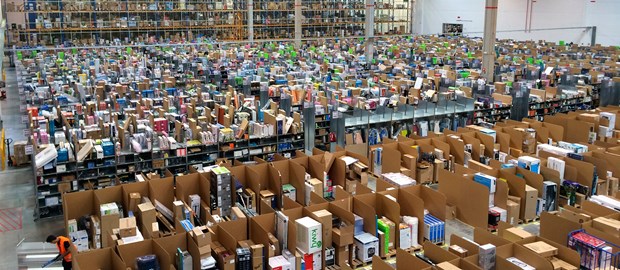
Amazon is Far From a Destroyer of Brands
Recently I read an article in the New York Times, about how Amazon is going to destroy brands with its search algorithm, voice, or the Wingardium Leviosa spell. It triggered some thoughts from me based on experience and an hour long interview I did in Cannes with Jeremi Gorman, the SVP of Advertising for Amazon in the USA. In short, I find a lot of this media hyperventilating about Amazon and private label misunderstands both Amazon and private label pretty fundamentally, and introduces a bunch of really spotty thinking on topics ranging from the role of brands in voice to Amazon’s status as a monopoly.
Private Label
First off, private label is NOT something Amazon does particularly well today, particularly compared to almost any other large-scale retailer that isn’t Walmart. Private label/control brands are 29% of Macy’s sales, over 30% of Kroger’s and over 25% of Costco’s, for instance – and these are just US examples. Amazon will keep learning, and they’ve had successes in commodity categories, but it’s still a small part of their total business.
Obviously, many other markets (notably the UK) have much higher PL penetrations than the US does, which hasn’t changed dramatically with close to 10% of the UK grocery market shifting to online and the UK being (on a percent basis) the second most eCommerce penetrated market in the world (after China).
Voice and Brand
Scott Galloway from L2 is a smart, engaging, knowledgeable eCommerce brain, and he has made a nice cottage industry out of the battery example cited in the NYT piece, but it simply isn’t what happens when you buy batteries on Alexa.
If you ask it for Energizer batteries, it sells you Energizer batteries. If you don’t, and you’ve bought Energizer batteries before, it will sell you Energizer batteries.
If you don’t care enough about Energizer or Duracell to ask for Energizer or Duracell batteries, that’s really not Amazon’s problem – that’s a failure on the part of Energizer and Duracell. NO ONE is going to buy anything through Alexa if they have to argue with it. Customers just won’t use it. Amazon’s a smart company – they know that.
Today, and for the foreseeable future, voice is ideal for buying something you’ve bought before and are loyal to – that’s the easiest way to shop voice (a relatively time intensive way to shop vs. visually selecting across multiple choice). The only way voice is of use to a shopper vs. their phone in their pocket is if they know what they are looking for.
In fact, I would argue voice is the best thing that’s ever happened to great brands…brands have spent years building the esoteric concept of “recall” -this is an actual commercial application of it.
Monopoly/Monopsony
No company that has a 4% market share of its industry has ever fallen victim to an antitrust lawsuit – that’s what Amazon has of US retail today. They’re still about 1/3 the size of Walmart in the US.
For some reason the article talks about what access to Amazon’s data costs and how that’s a barrier to brands. However, Amazon clearly isn’t a pay to play environment, since small brands that can’t afford to pay run circles around large brands that would happily buy share if they could on that platform. Winning share on Amazon is a combo of sensibly applied money and skill. For instance, there’s a bunch of commentary in this article about looking at reviews, using Vine, and running A/B tests for pricing that are positioned as “stuff Amazon can do”. It’s also “stuff anyone can do on Amazon if you know how and make an effort”.
I think the real challenge to brands from Amazon is that it requires a new way of working and thinking about building equity and penetration, and new skills. Large brands are inconsistent in their willingness to learn these new techniques.
Source: Kantar Consulting